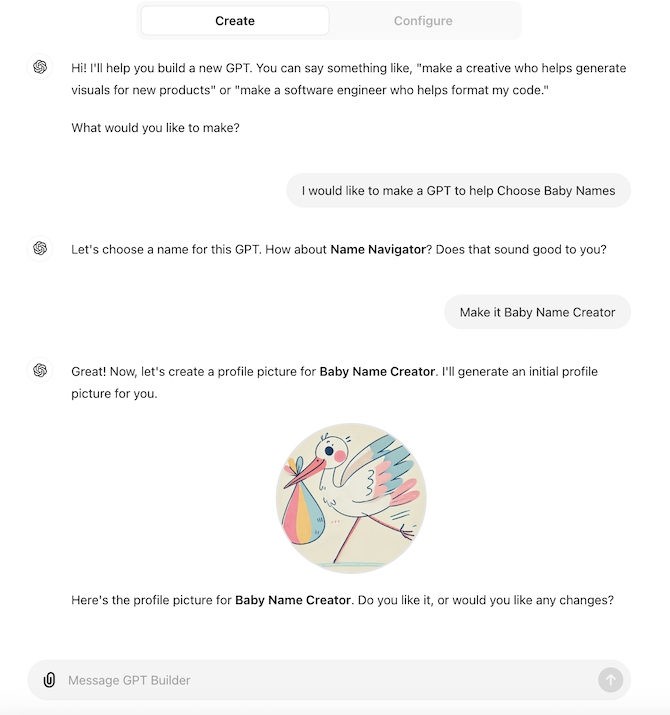AI is reshaping the startup landscape. Tools such as ChatGPT, Perplexity, Claude, Microsoft Copilot, Midjourney and others enable even the less experienced among us to create business plans, logos, presentations, legal documents, SOPs, articles, offer letters and even movie scripts.
4 Top Uses for a Custom GPT
- Interpreting legal contracts
- Creating content in your own writing style
- Creating logos, social media posts and promotions.
- Generating leads by making and sharing custom GPTs with your clients
OpenAI’s custom GPTs are akin to a major software upgrade. They are AI models optimized for specific tasks, industries or styles, enhancing efficiency and effectiveness. Custom GPT uses include customer service, content creation, coding and business automation. They make accessing information easier because someone else has already done the heavy lifting of prompt engineering.
The advances with Custom GPT have opened up a whole new level of access for those of us who are a bit techno-challenged. You can create mini software programs and all you have to do is chat with it.
Create Your Custom GPT
Creating a custom GPT involves logging into your OpenAI account, navigating to the Explore GPTs section and following the steps to create and configure your AI model. You cannot create GPTs without a paid membership, but non-paying members can access these GPTs, albeit with limited access.
Creating a custom GPT can be as simple as answering a series of questions under the Create tab.

Within seconds, you can generate a name and logo. You can refine your criteria to generate more relevant information in the style and format that works best for your viewers. You can create GPTs for personal use or share them with the world through the GPTStore.
Your Custom GPT: Personal Use
Personal GPTs have different use cases, many of which are suitable for founders and executives.
For example, I like to use GPTs to interpret contracts. Simply upload the contract under the configure section, and then you can ask it any questions you like. This is a great way to learn about the details in a contract or make changes to it. It can actually draft amendments as well.
Although you could do it the old-fashioned way by cutting and pasting a contract into ChatGPT, it can be a cumbersome process. It’s a lot easier to upload the entire contract into a custom GPT, and whenever you need access to that contract you can go directly to the GPT.
A caveat, though: This is still relatively new technology, and you shouldn’t rely on it 100 percent. Always get legal advice if you need it. I did have a situation where two amendments were being made, and it used section numbers that already existed. Hallucinations can be a real issue, so double check everything.
I also created another personal GPT to help me generate content in my own writing style, which is direct and to the point. I uploaded several documents, including my book, Start. Scale. Exit. Repeat., to a custom GPT. I don’t want to sound like a New York Times reporter, which you can prompt ChatGPT to do. Instead, I want the content to truly reflect my style.
Your Custom GPT: Open Use
Open-use custom GPTs can tackle more complex issues than simply using ChatGPT. For example, a custom GPT for logo design can streamline the process as well as use the expertise of the author of that GPT.
Entrepreneurs can also create and share GPTs on platforms like the GPT store, offering valuable tools to a broader audience. These GPTs can cover various topics, from personality assessments to start-up advice.
Here is a list of GPTs we created for our Startup Club members. Each helps them start their business.
- PersonalityProfileAI.com
- StartupPurposeAI.com
- IdeaGeneratorAI.com
- DomainIdeasAI.com
- CompanyValuesAI.com
- ScaleRatingAI.com
- MoatBuilderAI.com
- PersonalityProfileAI.com
- StartPlanAI.com
We like to add unexpected moments of delight (UMODS) that enhance user experiences. For example, on our Company Values GPT, we provide four to six core value statements after a user answers several questions, and then compare their startup with other businesses that have similar cultures.
Brand Your Custom GPT
Once you create your custom GPT, it’s time to brand it. Using a domain name makes it easy for someone to find. If you are on a podcast, for instance, you can mention it. Surprisingly, you can still get great domain names for $10 or less. We registered CompanyValuesAI.com for our Company Values GPT.
We also like to create a landing page for the custom GPT so Google can index it. This gives us an opportunity to explain the GPT and provide additional images or videos.
Monetize Your Custom GPT
OpenAI has talked about supporting creators. The OpenAI blog states: “As a first step, U.S. builders will be paid based on user engagement with their GPTs. We’ll provide details on the criteria for payments as we get closer.”
I wouldn’t rely on this to make money. Platforms have a history of attracting creators with promises of striking gold, only to abandon the creators down the road.
For now, we use custom GPTs as lead generators. We offer free startup GPTs to help users start their business and suggest that they can get more information by purchasing the book on Amazon.
Canva launched a custom GPT to help create logos, social media posts, and other promotions. The app, with more than 2 million users, seamlessly directs users to its platform.
The recent decision to allow users to access custom GPTs for free shows that OpenAI aims for something bigger than just $20 per month membership fees. They want to create the next app store. The key for entrepreneurs, like any new marketplace, is to get in at the beginning. Think of it like the big bang theory: one small change can have a huge impact down the road.
AI is transforming the way to approach entrepreneurship. Now with custom GPTs, even those with limited technical know-how can harness powerful AI capabilities. Just as we saw in the 2010s with the rise of appreneurs, custom GPTs could give rise to a new breed of entrepreneurs focused on creating, marketing and selling GPTs.





